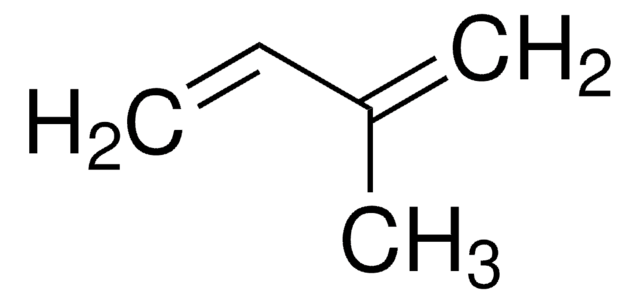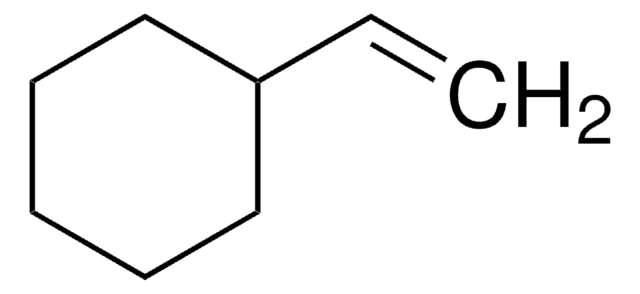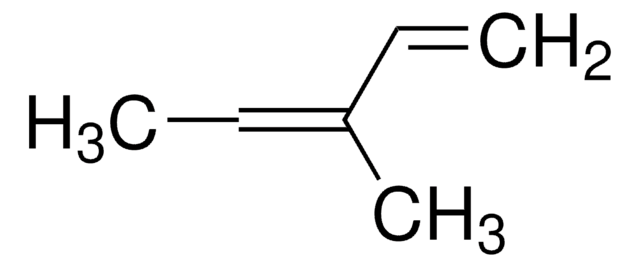All Photos(1)
About This Item
Linear Formula:
CH2=CHCH2CH=CH
CAS Number:
Molecular Weight:
68.12
Beilstein:
1696934
EC Number:
MDL number:
UNSPSC Code:
12352100
PubChem Substance ID:
NACRES:
NA.22
Recommended Products
vapor pressure
11.91 psi ( 20 °C)
Quality Level
Assay
99%
refractive index
n20/D 1.389 (lit.)
bp
26 °C (lit.)
mp
−148 °C (lit.)
density
0.659 g/mL at 25 °C (lit.)
storage temp.
2-8°C
SMILES string
C=CCC=C
InChI
1S/C5H8/c1-3-5-4-2/h3-4H,1-2,5H2
InChI key
QYZLKGVUSQXAMU-UHFFFAOYSA-N
Looking for similar products? Visit Product Comparison Guide
Application
1,4-Pentadiene can be used as a precursor in the synthesis of (+)-isolysergol, phosphorinanes and lithium pentadienyl complexes.
accessory
Product No.
Description
Pricing
Signal Word
Danger
Hazard Statements
Precautionary Statements
Hazard Classifications
Asp. Tox. 1 - Flam. Liq. 1
Storage Class Code
3 - Flammable liquids
WGK
WGK 3
Flash Point(F)
-4.0 °F - closed cup
Flash Point(C)
-20 °C - closed cup
Personal Protective Equipment
dust mask type N95 (US), Eyeshields, Gloves
Choose from one of the most recent versions:
Already Own This Product?
Find documentation for the products that you have recently purchased in the Document Library.
Customers Also Viewed
A H Neerincx et al.
Journal of breath research, 10(4), 046014-046014 (2016-12-03)
Staphylococcus aureus (S. aureus) is a common bacterium infecting children with cystic fibrosis (CF). Since current detection methods are difficult to perform in children, there is need for an alternative. This proof of concept study investigates whether breath profiles can
Fethi Khaled et al.
The journal of physical chemistry. A, 123(11), 2261-2271 (2019-02-16)
Hydroxyl radicals and olefins are quite important from a combustion and an atmospheric chemistry standpoint. Large amounts of olefinic compounds are emitted into the earth's atmosphere from both biogenic and anthropogenic sources. Olefins make a significant share in transportation fuels
Structural Influences in Lithium Pentadienylsilane Complexes.
Day B M, et al.
Organometallics, 32(15), 4448-4451 (2013)
Light-Driven, Zirconium-Catalyzed Hydrophosphination with Primary Phosphines.
Bange C A, et al.
ACS Catalysis (2018)
Jason A Deck et al.
Organic letters, 12(11), 2610-2613 (2010-05-14)
The first enantioselective synthesis of (+)-isolysergol was completed in 12 steps from commercially available materials by a novel approach that features a late stage microwave-mediated, diastereomeric ring-closing metathesis catalyzed by a chiral molybdenum catalyst to simultaneously form the D ring
Our team of scientists has experience in all areas of research including Life Science, Material Science, Chemical Synthesis, Chromatography, Analytical and many others.
Contact Technical Service













